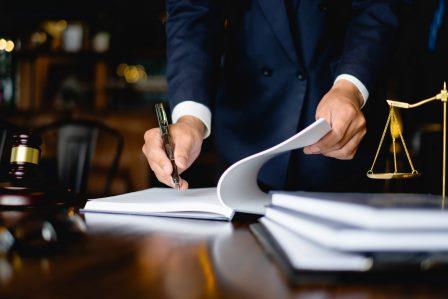Drowning in debt? Considering bankruptcy in Pennsylvania but worried about the cost of a lawyer? You’re not alone. This blog provides a step-by-step guide to filing for bankruptcy in PA without a lawyer, outlining the process, resources, and potential pitfalls to be aware of.
Important Note: While this guide offers information, it doesn’t replace professional legal advice. Bankruptcy laws can be complex, and mistakes can have serious consequences. Consulting a bankruptcy attorney is highly recommended, especially for intricate cases.
Understanding the Different Types of Bankruptcy
Before diving in, it’s crucial to understand the two most common types of consumer bankruptcy:
- Chapter 7: This is a liquidation bankruptcy, meaning you sell non-exempt assets to pay back creditors. It offers a fresh start by discharging most unsecured debts like credit cards and medical bills.
- Chapter 13: This is a reorganization bankruptcy, where you create a repayment plan under court supervision to pay back creditors over 3-5 years. You keep your assets, but successfully completing the plan is mandatory to discharge remaining debt.
Determining Eligibility for Filing Without a Lawyer
While there’s no legal requirement to have a lawyer for filing bankruptcy, the process can be complex. Here’s what to consider:
- Financial Complexity: If your finances are relatively straightforward, with minimal assets and income, filing without a lawyer might be feasible.
- Debt Type: If you have primarily unsecured debts like credit cards, Chapter 7 could be a simpler option to navigate yourself.
- Comfort Level: Are you comfortable with legal paperwork and procedures? If legal matters make you nervous, a lawyer’s guidance might be invaluable.
The Steps to Filing for Bankruptcy in PA Without a Lawyer
- Gather Financial Documents: Collect tax returns, pay stubs, bank statements, credit card statements, and proof of income and expenses.
- Take a Credit Counseling Course: This is mandatory by law for both Chapter 7 and Chapter 13 filers. You can find approved courses online or through non-profit organizations.
- Choose Your Chapter: Decide between Chapter 7 and Chapter 13 based on your financial situation and debt type. Research the exemptions allowed in Pennsylvania to determine which assets you can keep.
- Complete the Bankruptcy Forms: The US Courts website provides official bankruptcy forms. Download the appropriate forms for your chosen chapter and state. Be meticulous and accurate when filling them out.
- File Your Petition: Once the forms are complete, file them with the Clerk of the Bankruptcy Court in your district along with the filing fee.
- Attend the Creditor’s Meeting: A court-appointed trustee will review your case and creditors can question your finances. Be prepared to answer questions truthfully.
- Complete Your Repayment Plan (Chapter 13 only): If filing under Chapter 13, you’ll need to create a repayment plan that meets court approval.
- Receive Your Discharge (Chapter 7 only): After completing the court-ordered procedures, your eligible debts will be discharged.
- Complete Debtor Education Course (Chapter 7 and 13): After discharge, you’ll need to complete a debtor education course to understand responsible credit management.
Some Important Point/ Frequently Asked Questions on Various Online Platforms Like Google, Quora, Reddit and others
How much does it cost to file for bankruptcy in PA without a lawyer?
The filing fees vary depending on the chapter you choose. You can find the current fee schedule on the US Courts website. While you save on lawyer fees, there are still costs associated with credit counseling courses and filing fees.
Can I keep my house and car if I file for bankruptcy in PA?
Pennsylvania follows federal bankruptcy exemptions. Exemptions allow you to protect certain assets from liquidation in a Chapter 7 case. Whether you can keep your house or car depends on the value and Pennsylvania’s exemption limits. Researching these limits is crucial before filing.
What happens to my credit score if I file for bankruptcy in PA?
Filing for bankruptcy will negatively impact your credit score, but the severity and duration vary. Chapter 7 typically remains on your credit report for 10 years, while Chapter 13 stays for 7 years. Responsible credit management practices after bankruptcy can help rebuild your score over time.
Should I file for bankruptcy on my own in PA?
This depends on your specific situation. Consider your comfort level with legal matters, financial complexity, and the potential benefits of professional guidance. Consulting a bankruptcy attorney for a consultation can help you weigh the pros and cons of filing without a lawyer.
